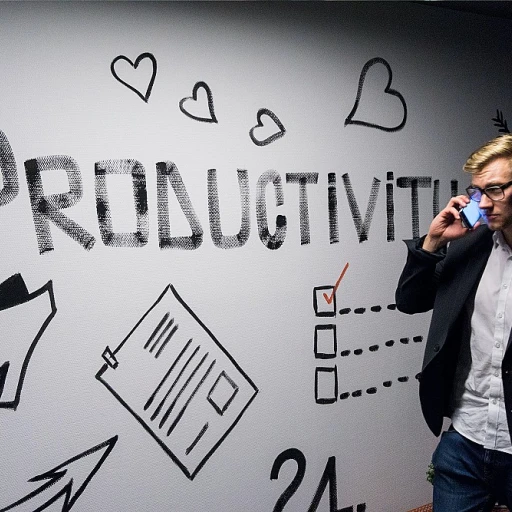
Understanding Developmental Goals
The Foundation for Growth
Setting developmental goals in the workplace lays the groundwork for both personal and professional growth. These objectives are essential for employees looking to enhance their skills, such as communication skills, problem-solving, and time management. Developmental goals are not just about adding new skills but can also include refining existing ones for better performance management. For professionals aiming for career advancement, establishing clear objectives can bridge the gap between where they are and where they aspire to be. Identifying and understanding these goals is the first step in achieving professional growth and effectively improving employee performance. Short-term and long-term goals cater to the varying needs and timelines of employees. While short-term goals are achievable in a relatively brief period and can boost immediate work performance, long-term goals require a more strategic approach to achieve sustained development. Moreover, establishing performance goals is crucial in guiding employees toward efficiency in their current roles, while also nurturing skills that can empower them to take on new challenges. Such goals work by aligning employee aspirations with the overarching aims of the organization, transforming individual achievement into collective progress. The importance of setting developmental goals cannot be overstated. Whether focusing on personal development or aiming for career advancement, these objectives serve as a roadmap guiding employees on the path to reach their full potential. In a supportive environment, these goals can lead to both individual and organizational success. For further insights into crafting effective performance review phrases for initiative, you can explore this helpful resource.Aligning Goals with Company Vision
Harmonizing Goals with the Organizational Mission
Setting developmental goals at work should resonate with the company’s vision and objectives. When employees’ ambitions align with the broader organizational goals, it injects purpose into their tasks, boosting both morale and productivity. Here’s how to achieve this alignment effectively:- Understand the Company Vision: Employees should be encouraged to familiarize themselves with the company vision. This understanding helps them identify how their roles contribute to overall success, nurturing a sense of belonging and purpose.
- Link Personal and Professional Goals: Aligning personal development with professional goals ensures that employees aren't just contributing to the company's success but are also securing personal growth and career advancement. For instance, enhancing communication or project management skills can fulfill company needs while promoting individual development.
- Leverage Team Goals: Collaboration is key. When employees work towards shared team objectives, they create synergy that fuels collective success and personal growth. This approach also enhances skills like problem solving and time management.
- Seek Continuous Feedback: Regular feedback and performance evaluations help employees assess their progress in alignment with company targets. It acts as a bridge between personal ambition and organizational expectations, ensuring ongoing professional development.
Strategies for Setting Achievable Goals
Strategies to Ensure Realistic Development Goals
Setting developmental goals in the workplace is a crucial component of professional growth. However, it's essential to establish achievable objectives to guide both short-term and long-term career advancement. Let's explore some effective strategies to enhance goal-setting processes and empower employees to excel in their roles.
- SMART Goals Framework: This widely recognized model emphasizes creating goals that are Specific, Measurable, Actionable, Realistic, and Time-bound. By adhering to these criteria, employees can improve their performance management and achieve tangible results.
- Prioritize Personal Development: Encourage employees to incorporate elements of personal development into their professional goals. This could involve enhancing communication skills, time management, or problem-solving abilities, facilitating personal growth that aligns with professional goals.
- Integration with Company Vision: Ensure that individual development goals resonate with the overarching company vision and objectives, promoting unity and collective success within the team. Read more on aligning goals with company vision.
- Regular Check-Ins: Schedule consistent feedback sessions to assess progress and discuss any obstacles employees might face. Open communication can foster a supportive environment where employees feel motivated to strive for their career advancement goals.
- Encourage Flexibility: Allow room for adjustment in goals to reflect changing circumstances or new opportunities. This flexibility can help maintain relevance and motivation in achieving developmental goals.
By implementing these strategies, organizations can help their workforce set realistic and impactful development goals. This not only improves individual performance but also aids in cultivating an environment conducive to professional growth and career advancement.
Overcoming Challenges in Goal Setting
Addressing Common Goal Setting Challenges
The journey of setting developmental goals is not without its hurdles. These challenges can stagnate progress in both personal and professional growth. To ensure employees can advance in their careers, it’s essential for organizations to recognize and address these difficulties.
Firstly, one of the predominant challenges is the ambiguity in goal setting. Often, employees may not have a clear understanding of the specific outcomes that are expected. To overcome this, establishing clear communication channels is imperative. This involves defining goals with precision and ensuring alignment with the company’s broader vision. Clear goals foster better time management and problem solving among teams and individuals.
Another common obstacle relates to resource availability. Employees might feel they lack the necessary resources or skills to accomplish their goals. To mitigate this, providing access to tools and training for skill enhancement is crucial. This can range from improving communication skills to honing project management capabilities. Equipping employees with what they need helps maintain their growth trajectory and boosts overall performance.
Feedback and evaluation play a critical role in overcoming these challenges. Constructive feedback ensures that employees understand their progress and areas needing improvement. Regular evaluation sessions also serve to refocus efforts and adjust goals as necessary, ensuring employees continue to work towards achievable performance goals.
Achieving professional development requires persistence and adaptability. While short-term setbacks may occur, maintaining focus on long-term development goals will invariably lead to career advancement and personal growth. Encouraging a culture that values resilience and continuous learning can significantly enhance the effectiveness of goal setting within any organization.
The Role of Feedback and Evaluation
Feedback's Key Role in Personal Development
Effective feedback mechanisms are crucial in the goal-setting process as they provide employees with valuable insights into their performance and development. Feedback not only helps employees identify areas that require improvement, but it also reinforces the skills and behaviors that align with professional growth and company objectives. Timely feedback allows employees to make necessary adjustments to their developmental goals and performance goals, ensuring they stay on track to achieve both short term and long term objectives. It fosters an environment of open communication, promoting continuous personal development and professional development.Strategies for Effective Evaluation
Incorporating regular evaluation sessions is essential to assess the progress of goals. This process involves analyzing both the strengths and challenges faced by employees, which ultimately contributes to the refinement of their career advancement plans. Here are some strategies to consider:- Conduct Regular Check-ins: Schedule periodic meetings to discuss the progress of developmental goals. This helps in maintaining momentum and offers an opportunity for employees to voice any concerns.
- Use Clear Metrics: Establish tangible metrics for assessing performance. Goals should be specific, measurable, and focused on enhancing relevant skills, such as time management or communication skills.
- Encourage Self-Assessment: Allow employees to evaluate their own performance. This promotes self-awareness and personal responsibility for their career development.
Celebrating Success and Learning from Failure
Recognizing Achievements and Embracing Lessons
Celebrating success is vital to maintaining motivation and encouraging progress in achieving developmental goals. When employees reach milestones, whether they are related to personal development or professional growth, the recognition they receive from management can have a profound impact on their morale and future performance.- Acknowledgment of Achievements: Publicly acknowledging accomplishments not only boosts an employee's confidence but also reinforces the value of their contributions to the team and the organization. Effective recognition can come through awards, mention in team meetings, or even a simple appreciative note from a supervisor.
- Promoting a Culture of Learning: It's important to acknowledge that not all outcomes result in success. When performance goals are not fully achieved, they should be viewed as opportunities to learn and grow. Encouraging employees to embrace a growth mindset can transform setbacks into motivating factors for improvement.
- Feedback as a Tool for Growth: Constructive feedback plays a pivotal role in professional development. Encouraging employees to seek and provide feedback cultivates open communication and helps identify areas for improvement, whether in communication skills, time management, or problem-solving.
- Regular Evaluation: Consistent evaluation of goals and performance can help maintain focus and adaptability. Regular check-ins allow for adjustments to short term or long term goals based on changing circumstances and help align personal development with company growth.













